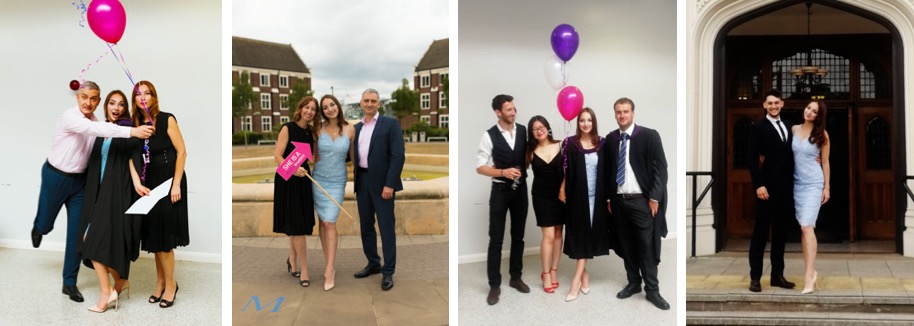Life after Loughborough – the master’s question
Studying for a master’s degree might not be for you. You may be itching to go into the real world and truly ‘make a difference’. Or maybe to start saving for a house. Perhaps even to take a year off to start your professional Instagram career while traveling around Laos.
On the other hand, a master’s degree may prove to be the precisely correct choice to take your career and personal development where you want it to go.
After graduation from Loughborough this summer, I’ve gone straight into a master’s programme, which is not causing me any regrets at the moment. I spent many nights searching for reasons to not do a postgraduate degree and truly hoping to avoid even more time in education. But reason won over and I was finally convinced to choose this path by the wise academics in my life, colleagues in my dream jobs, Loughborough’s amazing career advisors and loving friends.

Here are a few advantages of studying for a master’s programme:
- New knowledge to help change your career path or alternatively gain deeper understanding of one’s subject.
- Potential for faster and steeper career growth, as some of my industrial colleagues suggested.
- A statistically higher pay cheque. If not now, then in 5-10 years.
- An opportunity to develop a new professional network and experience a new department or university.
- Potential for better recognition of your degree in some countries, where a master’s degree is expected.
However there are some disadvantages to further study. But don’t worry, there are solutions!
- My greatest concern was pursuing a postgraduate degree that will not be useful to me 5/10/15 years later in my life.
- Alternative: do a degree later in your career, when you have a clearer purpose.
- Solution: choose a versatile master’s that will help you reach your goals and adapt to the rapid world change.
- Investment of even greater funds into your education.
- Alternative: Loughborough may offer a discount for students returning for a master’s programme.
- Solution: scholarships, funded PhDs…
- Investment of time.
- Solution: consider a part-time degree, or an additional degree offered by your employer. Occasionally, employers in the UK will also sponsor PhD projects for existing employees.
For me, a master’s is primarily a method of building on my engineering skills in order to pursue a career in a technical field different to the one I have prior experience in. For you, these reasons may differ, but I definitely recommend seeking out the opinion of more experienced individuals! In particular, consider contacting your dream employers and asking for their view on your plans, as well as academics in your field.

Applying to UK master’s programmes is different from applying to your undergraduate degree, it’s much easier. You are no longer limited to only 5 programmes as in the undergraduate UCAS process. Being a logical risk-taker, I only invested in applying to a single programme. In order to maximize on this one application, I put a lot of time into researching the course on the university’s website and beyond, before reaching out to them.
One of my friends (and fellow blogger!) was also interested in the programme, and, luckily for me, a meeting with the course director was secured in November during the Open Day. On the day, I got a very good feeling for the general atmosphere of the University, including the normal day-to-day life and services provided, such as the careers department. When we met with the course director, everything suddenly fell into place – all of my challenging questions received satisfactory answers, in line with my values, and the people I met were lovely.
The vision of the programme truly resonated with my interests and so I decided to investigate it further. I got in touch with past alumni on LinkedIn and even managed to snag myself an invitation to a social event with current students on the course. Utterly loving that interaction was a key factor in identifying whether the programme was correct for me. It seemed like it was.
Following the formal application, I was invited to a short interview, which seemed to be a check of the applicant’s sanity and friendliness. Finally, after a painstaking few weeks of nervous waiting, I received a conditional offer to start the course in autumn 2018. Phew.

Here are my pointers for applying for postgraduate study:
- Be proactive and start soon! Some Universities have early deadlines, particularly for scholarship applications. These can be as early as mid-November.
- Contact a lot of people in the department.
- Find out what positions alumni of the course hold now.
- Learn as much as possible about the modules and projects offered.
- Be a critical thinker and try your best to assess whether the course will add value to your personal development.
Finally, now that I have started this new adventure, is the master’s right for me? I don’t know, we will find out in a few years’ time whether it was worth it! I am optimistic that the choice to do a masters will pay off in the long-term.
For now, I am very much enjoying it – in particular, the industrial trips that my new course runs on a weekly basis. This week we were at a motorcycle manufacturer, where I got to reconnect with a friend from Loughborough, now on a graduate scheme there! Still only a few weeks into my postgraduate degree, I am most enjoying making new friends, learning new concepts and developing myself as an individual. In addition, I get to be a student for an extra year!
If you are interested in this path, you can start your own further research through:
- UCAS master’s search
- Loughborough’s career services
- LinkedIn: Loughborough alumni, people in your dream jobs.
- The Internet
- Your professional and personal network!
Student Life
Find out what makes 'The Loughborough Experience' by reading our student blogs.